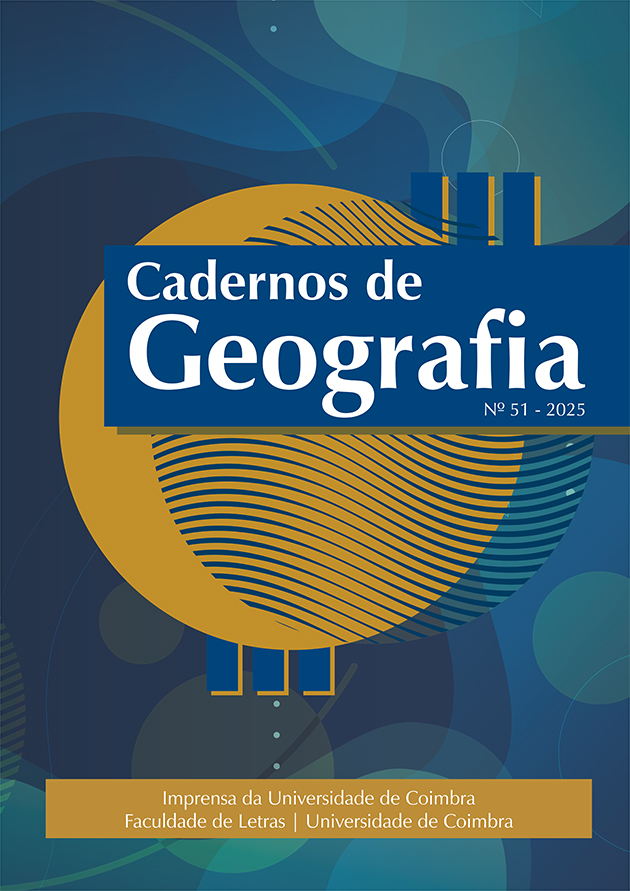Land Use and Land Cover in the Mangues River Basin
Agricultural Occupation in a Tropical Humid Pre-Coastal Area
DOI:
https://doi.org/10.14195/0871-1623_51_3Keywords:
Rural Environmental Registry (CAR), Atlantic Forest, Landscape Analysis, Agroforestry-pastoralAbstract
The study area is the Rio dos Mangues watershed, located north of Porto Seguro, Bahia, with an area of 35.12 km². The objective was to analyze the dynamics of land use and land cover from 1990 to 2022 in the Rio dos Mangues watershed, using vector data from the Fórum Florestal Baiano and the Cadastro Ambiental Rural (CAR). The methodology involved delineating the watershed through the processing of Alos Palsar DEM with a spatial resolution of 12.5 m, corrected and reprojected to the DATUM SIRGAS 2000, UTM zone 24S. The segmentation of the watershed was performed in QGIS 3.22, creating 10 distinct landscape units. The multitemporal analysis utilized vector data from the Fórum Florestal Baiano, with thematic classes defined by the IBGE Land Use Technical Manual, covering agricultural areas, pastures, forestry, and other uses. Data from SICAR, updated until 2024, were processed in QGIS to analyze the spatial distribution of rural properties and identify agricultural occupation patterns. The results indicate a continuous reduction in forest cover, which decreased from 43.52% in 1990 to 41.74% in 2022, and an increase in agricultural areas, from 9.81% to 12.57% over the same period. The analysis of different segments of the watershed revealed variations, especially in the areas located to the west of the watershed, where the largest conversions of pastures to agricultural areas were observed due to the creation of agrarian reform settlements. The Rio dos Mangues watershed is undergoing a significant conversion of forested and pasture areas to agricultural lands due to agrarian reform policies. This change affects the environmental management and conservation of the watershed. The impairment of surface drainage, in addition to impacting local ecosystems, can jeopardize municipal public water supply. Therefore, it is essential to implement sustainable management practices to ensure the availability of water resources and the ecological integrity of the watershed.
Downloads
Downloads
Published
Issue
Section
License
Copyright (c) 2025 Cadernos de Geografia

This work is licensed under a Creative Commons Attribution 4.0 International License.
Authors retain copyright and grant the journal right of first publication with the work simultaneously licensed under a Creative Commons Attribution License that allows sharing the work with recognition of authorship and initial publication in Antropologia Portuguesa journal.



